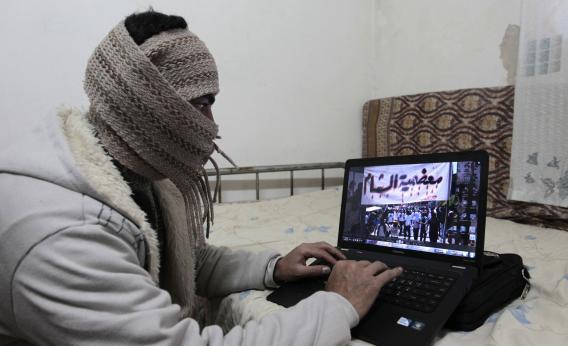Keeping track of the avalanche of reports about new mass surveillance initiatives and Internet freedom crackdowns can be a difficult task. But soon there could be a solution to the problem: a global monitoring system that will help chart digital repression by mapping the Internet’s “cyber geography” in near real time.
The idea spins off of a strategy called “No Disconnect,” which was launched last year by the European Commission, the EU’s executive body. No Disconnect aims to provide citizens in non-democratic countries with tools to fight “arbitrary censorship restrictions and protect against illegitimate surveillance.” It was largely inspired by the indiscriminate spying, tracking, and Web filtering exposed during the Arab Spring in countries such as Syria and Libya, sometimes assisted by Western technology firms.
Now, the team behind the strategy are building what they call a “European Capability for Situational Awareness.” ECSA will attempt to pull together, aggregate, and visualize up-to-date intelligence about the state of the Internet across the world. It will show content filtering, blocking, or other disruptions to the Web, among other things. ECSA could prove to be a vital resource, particularly if it is opened up for free public use. By centralizing and mapping data about surveillance and censorship in near real time, it would help inform not only EU politicians but journalists, lawmakers, human rights activists, and citizens internationally. Andrea Glorioso, the European Commission officer responsible for ECSA, told me the aim was to make the platform “as open as possible, both for contributing and for accessing it.” However, he added, “choices might have to be made depending on the sensitivity of the information being handled.”
A prototype for ECSA is tentatively planned to launch in 2013, and Glorioso is holding a workshop in Brussels, Belgium, on Nov. 23 to discuss its scope and objectives. Glorioso and his colleagues are looking to share ideas with other groups or organizations working on similar initiatives and are also considering organizing a “hackathon” (a collaborative programming event) for ECSA at some point in the latter half of next year.
The No Disconnect team says it has had ongoing dialogue with the U.S. State Department about its plans. But so far Europe continues to take the lead on tacking surveillance and Internet freedom issues, which are far higher on the political agenda in Europe than in the United States. Aside from the No Disconnect strategy and ECSA, last month the European Parliament endorsed a proposal put forward by Dutch parliamentarian Marietje Schaake calling for stricter rules on exports of “digital arms”—such as surveillance tools used to monitor, track, and trace citizens. (Companies in Britain, France, and Italy have been accused of selling surveillance tools to authorities in countries that have abused them to monitor dissidents and activists.)
Schaake said the move was “a big step forward” and pointed out that the concept of lawful interception, which allows police in the democratic countries to wiretap conversations and spy on emails (usually with a warrant or court order), does not apply in countries where the rule of law is absent. “It is of fundamental importance that politicians and companies are aware of this new reality and will act responsibly,” she said. Senior American policymakers are aware of this new reality—but their pragmatic view is that stricter export controls alone will not necessarily stop mass spy tools getting into the hands of despots. “We can restrict the sale of [surveillance technology] exports from American companies,” said Alec Ross, a senior adviser to Hillary Clinton, during an interview in August. “But then they are able to turn around and buy it from another country.”
